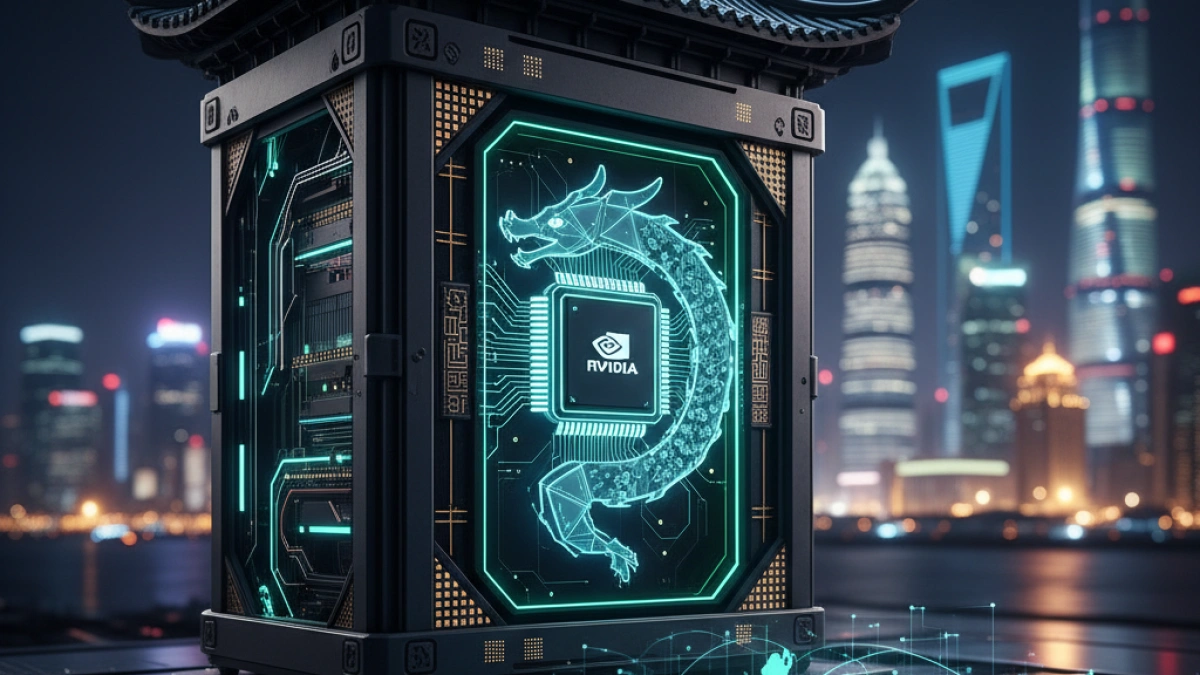Nvidia and Jensen Huang: China Steps Closer to Leadership in AI Chips


In today's competitive technological landscape, Nvidia has become a focal point of global attention, especially following recent statements from its CEO, Jensen Huang. In an interview for the BG2 podcast, Huang stated that China is "nanoseconds behind" the United States in chip manufacturing, suggesting to Washington the need to review export restrictions affecting the company's artificial intelligence (AI) chips. This appeal comes amid a growing rivalry between the two powers.
The United States and Export Restrictions
Jensen Huang argued that allowing companies like Nvidia to sell their products in China would not only benefit the company but also serve U.S. interests by facilitating the expansion of American technology and boosting its geopolitical influence. "We are facing a formidable, innovative, hungry, fast-moving, and lightly regulated competitor," Huang commented, highlighting the growing capabilities of Chinese engineers and the notable work culture in the country.
The statements from Nvidia's CEO come at a critical time for the company, which is preparing to resume shipments of its AI H20 GPU to Chinese customers after a months-long pause related to new U.S. export regulations. It has been indicated that the Department of Commerce will begin issuing licenses for the H20 starting in August. Additionally, Nvidia is in the process of developing a successor chip that complies with current restrictions and improves performance, marking the second time it has adapted an AI accelerator specifically for the Chinese market since the implementation of bans on the A100 and H100 models.
China's Response to Technological Advancements
Meanwhile, China is accelerating its efforts to achieve technological self-sufficiency. Huawei has begun mass shipping its new Atlas 900 A3 SuperPoD systems, powered by the company's Ascend 910B chips. Huawei has outlined an ambitious roadmap extending to 2027, developing next-generation silicon aimed at matching or surpassing the performance of current technology. These systems are designed without relying on CUDA, optimizing for software stacks developed in China, which exerts considerable pressure on Nvidia's dominance, which previously held a 95% market share in the country.
Read also
Large Chinese tech companies, known as hyperscalers, are supporting this roadmap through significant investments. Companies like Baidu, Alibaba, Tencent, and ByteDance are investing in custom silicon, either through in-house chip teams or by funding startups. Tencent, for example, has announced that it has fully adapted its infrastructure to support domestically manufactured silicon.
Future Perspectives According to Jensen Huang
When asked about the near future, Huang stated: "They [China] publicly say they want China to be an open market, that they want companies to come to China and compete in the market... and I believe, and hope, that we will return to that." This statement reveals Nvidia's intention to maintain a presence in the Chinese market while navigating the complex current geopolitical divides.
The company is attempting to balance its presence on both sides of this divide, offering the H20, which, although potentially limited compared to Nvidia's leading chips, provides Chinese companies an opportunity to remain within Nvidia's ecosystem, at least temporarily.
Read also
This approach highlights the delicate balance between technological competition and political restrictions, with significant implications for the future development of artificial intelligence and chip manufacturing globally.
Conclusion
Jensen Huang's assertions emphasize the current reality in the tech sector and its vulnerability to geopolitical dynamics. As China advances in its AI chip capabilities, the interaction between U.S. and Chinese companies becomes crucial for understanding the future of technology.
For more content related to the evolution of technology and its impact on the global market, visit my blog for more news.



















